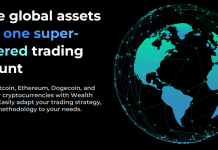HNWIs reassess their spending habits amidst the pandemic

The pandemic has greatly affected the world in recent years, impacting both the global economy and our personal finances. As a country, we have faced unprecedented challenges, and for some, changed our attitudes towards spending, as a result.
This is particularly apparent amongst high-net-worth individuals (HNWIs), according to the inaugural Saltus Wealth Index.
The Wealth Index collated the results of a survey conducted by financial planning and investment management firm, Saltus. It included over 1,000 UK respondents with investable assets of £250,000 and over, and a median net worth of £1.5 million.
The research was conducted to discover the thoughts and views of HNWIs, concerning both the economic prospects of the UK, as well as their own financial and personal lives.
The findings included their feelings and uncertainties surrounding COVID-19, and how their lifestyles have changed as a result — which we’ll explore further in this article.
Confident about the economy but anxious about own money
Surprisingly, despite the disruption caused by the pandemic, some positivity still remains about the future of the UK economy. Eight in ten HNWIs (80%) said they feel confident in the UK’s economic prospects, 33% of whom went as far to say they felt very confident.
However, this differs across regions and by age. Confidence appears to decrease by age. Amongst those surveyed aged between 18 and 54, 37% felt very confident about the future of the economy, while for those aged 55 and over, this falls to just 14%. In addition, only 5% of respondents aged 65 and over, had such a positive outlook on the economy of the country.
The highest level of confidence was felt by those living in Northern Ireland, with 91% responding as such, when thinking about the UK economy as a whole. On the other end of the scale, only 64% of HNWI in Wales felt this way.
Those living in Greater London (41%) are more than twice as likely to feel very confident about the UK economy over the next six months, compared to those living in the West Midlands (18%).
The sentiment changes when it comes to HNWIs’ own wealth. The majority of those surveyed (61%) admit to feeling underlying anxiousness about their money, despite some confidence in the short-term prospects.
Again, this varies between ages groups. More than one in four (28%) of respondents aged under 24 felt they strongly agreed, and 39% said they somewhat agreed, with the following statement:
“My money makes me feel anxious.”
In response to the same statement, just 8% of over 65s said they somewhat agree and none of them said they strongly agree.
The Saltus Wealth Index revealed that COVID-19 was the top financial concern amongst HNWIs, followed by inflation and interest rates.
Spending priorities in a post-pandemic world
Although there are feelings of anxiousness amongst HNWIs, respondents also understood that financial security brings considerable benefits.
In addition, and despite being a top financial concern, the pandemic has altered the way HNWIs spend their money. According to the research, these individuals are now more likely to splurge on experiences over material goods, with holidays revealed as the top result (26%).
However, in terms of an investment prospective, HNWIs still believe that physical assets are the best use of their funds.
More than a third (34%) also believe it is worth spending their money on products and services, which have improved their experience of being at home — a direct response to the pandemic.
Other post-covid lifestyle changes included:
- Learning a new skill
- Spending more time with a spouse, children or grandchildren
- Being more philanthropic
In conclusion, it appears that amongst HNWIs in the UK, there is a shift in focus from assets to experiences, when it comes which is deemed more worthy.
Disclaimer: Information is correct to the best of our understanding as at the date of publication. Nothing within this content is intended as, or can be relied upon, as financial advice. Capital is at risk. You may get back less than you invested.








![Reltex Group Reviews: Explore business opportunities by Trading [reltexg.com]](https://comparic.com/wp-content/uploads/2023/12/image001-218x150.jpg)
![Mayrsson TG Reviews: Why Choose Crypto-Trading with Them? [mayrssontg.com]](https://comparic.com/wp-content/uploads/2023/12/image1-218x150.jpg)








